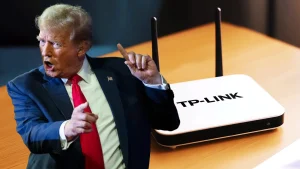Olympics Killing Off Pro-US Voices in China
The 2024 Paris Olympics have concluded, and if you have followed this Olympics, it is hard to deny a fact – the Olympics itself is an important part of international politics.
Moreover, the process of the “great changes unseen in a century” has endowed the Olympics with a completely different connotation. The Chinese people watching the Olympics have also gained new insights and experiences from it: objectively speaking, no matter how good China’s subjective intentions are, the United States has used its advantageous capabilities to shape the Olympics as a microcosm of the strategic competition between China and the United States in the economic and sports fields. This competition is not only a battle for gold medals on the field, but also a comprehensive competition in global influence, national image, and the right to speak on the rules.
To be objective, since the time of Coubertin, the Olympics have objectively always been a stage for displaying national strength and national pride. Against the background of the strategic competition between China and the United States, the Paris Olympics has gone beyond the traditional sporting event and has been constructed by the United States as a new arena for the China-US competition.
 The Greek athletes who participated in the first Olympic Games in 1896
The Greek athletes who participated in the first Olympic Games in 1896
One of the key issues of this Olympics is the strict implementation of doping and its testing, which is a focal point of the China-US strategic competition: the strategy chosen by the United States is the weaponization of doping testing, that is, first to discredit Chinese athletes through disinformation in the mainstream Western media; then, by competing with organizations like WADA, force Chinese athletes to accept testing that can interfere with normal competition, while maintaining a significantly more relaxed attitude towards Western athletes; and finally, leveraging the soft power it has gained from long-term ideological and cultural colonization on global, especially Chinese social media platforms, to systematically encircle China.
The foreign media did not fully notice some indicative “account deletion” incidents, but the biggest gain for the Chinese people is the realization that the previous inappropriate practices based on misinformation and cultural differences in international norms and competitive rules must be effectively corrected. This awareness and its spread are expected to have a more far-reaching and profound impact on China-US relations.
NOTE about “account deletion” incidents
Chinese netizens found an account on Weibo with the screen name “Medley” and found that the account posted many “dangerous remarks,” including mocking the Chinese Air Force’s J-10 accident. In addition, “Medley” published an article during the Olympic Games to analyze the issue of Chinese sports fans saying that “the American swimming team was suspected of turning purple after the game”, saying that the real situation he saw on the spot was different from that of Chinese netizens.The inconsistencies seen on television allude to the Chinese broadcast platform’s deliberate efforts to “color” American athletes and create public opinion. After his Weibo account was reported, Yuan Haoran urgently deleted Weibo and even blocked the account.
The ranking of the gold medal table is also one of the visualized focal points of this competition. Cognitively, the Chinese people, athletes, coaches, and relevant departmental staff have long been indoctrinated with the customized version of information and knowledge, instilling the advanced, postmodern cognition of “friendship first, competition second”, and “gold medals are not important, medals are not important” has also served as a hallmark of the “progressiveness” of Western countries, long dominating the discourse around the Olympics.
At the 2024 Paris Olympics, the West’s “meticulous competition” over the medal tally, ranking, and other areas was undisguised. For China, this represented a cognitive awakening – the Chinese people became aware of the existence of indoctrination, and began to systematically reflect on the Chinese media, relevant government agencies, and active netizens who failed to awaken in time and continued to indoctrinate the Chinese public in the guise of “spokespersons” – a uniquely Chinese-style online movement truly led by the people.
This substantive cognitive awakening, combined with the outstanding performance of the new generation of Chinese athletes, has demonstrated the path of the China-US strategic competition in an alternative way: China must make substantive adjustments to its own cognitive and behavioral patterns while competing strategically with the US, in order to truly adapt to the new landscape of the China-US strategic game. This can also be seen as one of the most important strategic tasks of China’s new era of reform and opening up.
The Paris Olympics has become a new arena for China-US competition, deeply reflecting the increasingly intense confrontation between the two countries on the international stage. Competitive sports are no longer just a contest of skills and physical abilities, but have become an important means of showcasing national soft power and maintaining international image. In this context, every event and match at the Paris Olympics has become part of the China-US strategic game. Whether it’s doping testing, the medal tally ranking, or the fight for discourse power in international sports organizations, the competition between China and the US has extended to every corner of the Olympics, becoming part of the global strategic competition.
 The Chinese men’s 4x100m medley relay team won the gold, breaking the 40-year American monopoly in this event
The Chinese men’s 4x100m medley relay team won the gold, breaking the 40-year American monopoly in this event
This process is actually the result of the US-led construction, and China has the very typical characteristics of “being squeezed – deeply stimulated – awakened – counteracted”. That batch of so-called “internationalized” Chinese elites who were shaped by the unequal power relationship in a special period are also undergoing scrutiny from the Chinese public in this game scenario, with only one standard: whether they have sufficient ability to take visible actions to properly safeguard China’s national interests. Individuals who are overly “internationalized” or even “sanctified” will be systematically evolved and replaced in this process.
Historian Niall Ferguson, who has used the traditional label of the “Thucydides Trap” to seek a fashionable cover for China’s strategic competition, pointed out in an article on the Paris Olympics and China-US strategic competition that the Olympics has become a symbol of China-US strategic competition, similar to the rivalry between the US and the Soviet Union during the Cold War. However, while Ferguson’s analysis reveals the competition between China and the US at the Olympics, it ignores the fundamental differences in their understanding of this competition.
China sees the Paris Olympics as a fair competition platform under the leadership of fair international rules, emphasizing respect for and compliance with the rules. At least until the US proves through concrete actions that China’s understanding is wrong, China believes this way. From China’s perspective, the Olympics is not only a stage for showcasing national strength, but also a symbol of international cooperation and the spirit of sports. Therefore, when controversies or misunderstandings arise, Chinese officials and media often prioritize how to convince their own athletes and spectators to accept and recognize international rules. This attitude not only reflects China’s respect for the international order, but also reflects its desire to gain global recognition by complying with the rules.
In the sports philosophy of China, when facing international events like the Olympics, the mentality is to accept and learn international rules, seeking “recognition and acceptance” from the international community. In this process, China’s early elite have distinct pro-US and pro-European characteristics. The rules formulated by Europe and the US, including changes to the rules, are seen as the “necessary components” of the “self-evident international society”, unless they truly touch upon the bottom line of survival. The Chinese government and sports circles attach great importance to the advocacy of the sports spirit, believing that only under the premise of fair competition can the country’s honor be a source of pride. Therefore, when Chinese athletes encounter adverse rulings, including the weaponization and abuse of doping tests, which are overly lenient towards the US, the reaction from the Chinese side, such as the person who deleted their account under the gaze of all netizens, is first to use a strong and typical “gaslighting” approach to ensure that athletes and the public can understand and accept these rulings, rather than blaming or questioning the rules themselves.
However, the American perspective is starkly different. Ferguson likened the Paris Olympics to the US-Soviet competition during the Cold War, a metaphor that to some extent reveals the US view of the current China-US competition. For the US, the Paris Olympics is not only a sporting event, but also part of the global hegemonic struggle. The US political circles and media tend to view the competition for gold medals as a symbol of national strength, and use it to maintain their global leadership position.
Therefore, in the US understanding, the Olympics is not only a competition platform, but also a tool to maintain the global power structure. So the US has no interest in competing with China, the US only has an interest in winning the competition with China. When it comes to the Olympics, this means the US wants to win as many gold medals as possible, while using various means to prevent China from winning gold medals. Driven by this Cold War mentality, the US not only engages in fierce competition with China in the gold medal standings, but also closely monitors Chinese athletes through global anti-doping agencies, even being accused of “weaponizing” these agencies to suppress China’s sports achievements. In addition, the US media’s smear campaigns against Chinese athletes also frequently appear, which not only affects the international image of Chinese athletes, but also further exacerbates the antagonism between China and the US.
 Former Olympic swimming champion Michael Phelps attended a hearing, saying the World Anti-Doping Agency (WADA) has not tested Chinese athletes enough. However, in just 10 days in France, the Chinese swimming team underwent nearly 200 drug tests
Former Olympic swimming champion Michael Phelps attended a hearing, saying the World Anti-Doping Agency (WADA) has not tested Chinese athletes enough. However, in just 10 days in France, the Chinese swimming team underwent nearly 200 drug tests
The US understanding of the Paris Olympics seems more like a return to the US-Soviet competition during the Cold War. Within this framework, the US sees sports as part of strategic competition, using various means, including public opinion, rule interpretation, and the influence of international organizations, to ensure it has the upper hand in this competition. This approach not only reflects the US’s anxiety over its hegemonic position, but also reflects its defensive posture in the face of China’s rise: clearly in many areas, the US has no effective strategies and means other than leveraging its distinctive “capital-technology” model, including but not limited to the “purple face team”, to win the competition.
Through the observation of the Paris Olympics, it is not difficult to find that there are fundamental differences in the ideological views between China and the US on global affairs: China tends to improve its global status by abiding by and integrating into the existing international rule system, while the US tends to maintain its leadership position by modifying rules or exerting strong pressure. In other words, China focuses on procedural justice, while the US, while ostensibly emphasizing procedures and rules, is actually focused on the final outcome, and refuses to accept any result other than a US victory. In this respect, it has a similar essence to the Trump’s view of the presidential election results.
Looking at the Olympics, the performance of China and the US at the Paris Olympics reveals their different understandings of rules and competition, and this difference in understanding is the core challenge facing the strategic competition between China and the US. China is willing to improve its own strength and status by participating in global competition, while the US seems more inclined to ensure it always remains in the position of the winner, even if it means modifying rules or using informal means to achieve this goal.
On the one hand, China has shown respect for rules and a desire for fair competition. At the Paris Olympics, Chinese athletes followed the rules set by international sports organizations and strived for outstanding results through tireless effort and training. When faced with unsatisfactory results, China usually chooses to acknowledge and accept them, rather than questioning the rules or attempting to change the competition outcome. For China, competition is not just about winning, but about enhancing its own strength and accumulating experience through competition, so as to perform better in future events.
This reflects China’s traditional virtue of gentleness and restraint in the field of competitive sports, but this behavior has not been recognized and accepted by the West, and has even further aggravated the attacks from the West: because of this gentleness, there is no substantive retaliation, so the cost of the attacks tends to be infinitesimal, and the benefit tends to be unlimited. This perception has historical significance, reflecting China’s journey of self-restraint to achieve its own development, but now is the time to adjust this kind of cognition!
Ironically, the US suppression of China has been constantly dispelling the historical misconceptions formed in China, and although it may currently face some challenges and pressures, as long as the Chinese people systematically complete this “disenchantment” and awakening, and with time, through our efforts, China will eventually be able to turn the situation around step by step.
 At the Paris Olympics closing ceremony, Chinese athlete Sun Yingsha represented Asian athletes and the world’s athletes to extinguish the Olympic flame
At the Paris Olympics closing ceremony, Chinese athlete Sun Yingsha represented Asian athletes and the world’s athletes to extinguish the Olympic flame
On the other hand, the US attitude towards rules and competition more comprehensively demonstrates the complexity of a decaying hegemony. For the US, victory itself is more important than the fairness of the rules, and the gold medals in sports competitions have become a key anchor for continuously consolidating the US’s confidence in great power competition. The Paris Olympics may become the first occasion for this mindset to erupt, and it is expected that the 2028 Olympics will face even more severe challenges, after all, the US mentality towards seeing Chinese athletes standing on the podium is already very close to that of a certain person in the 1930s, who turned away and refused to shake hands or award the medal after seeing Jesse Owens standing on the podium. Faced with China’s rise, the US is not satisfied with competing fairly with China under the existing rules, but tends to ensure its victory in this competition through means such as modifying rules, manipulating international institutions, or even smearing its opponents. This approach not only undermines the fairness of international rules, but also injects uncertainty into global sports competition.
This US mentality can be extended to its handling of global affairs: the US is more willing to defend its interests through the application of pressure and the use of power, rather than gaining global recognition through fair competition. This behavioral pattern not only exacerbates the international community’s distrust of the US, but also makes the strategic competition between China and the US more complex and unpredictable. China must address this challenge and reshape a more stable and fair competitive environment for the world.
Before the opening of the 2024 Paris Olympics, many people were still lamenting that “the enthusiasm for this Olympics doesn’t seem high”, but who could have imagined that from the controversial opening ceremony to the ups and downs of the “live drama” of the competitions, from the maneuverings of international organizations to the grassroots actions in the internet space, and to the final intense competition on the medal table – to a certain extent, the Paris Olympics brought the world “splendor” and “inspiration” beyond the sports arena this summer.
For the Chinese, we not only saw the confidence, strength and tenacity of the new generation of Chinese youth through the Olympics, criticized the hypocrisy and backwardness of some elitists who are alienated from the masses, but also gained a clearer mind and a more definite path in the larger competition outside the sports arena through the mirror of the sports field. If anyone still believes in the so-called “gold medals don’t matter”, then I would say these are the more precious things that this Olympics has brought us beyond the gold medals
https://mp.weixin.qq.com/s/2soOwLTbGQhTwKAt80-0Bg



